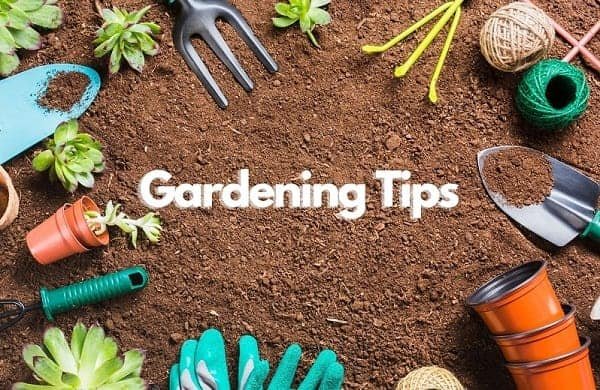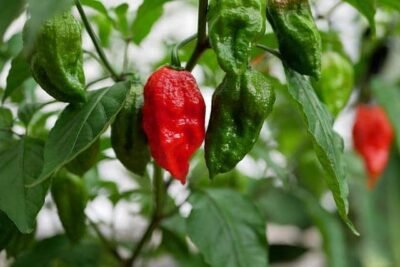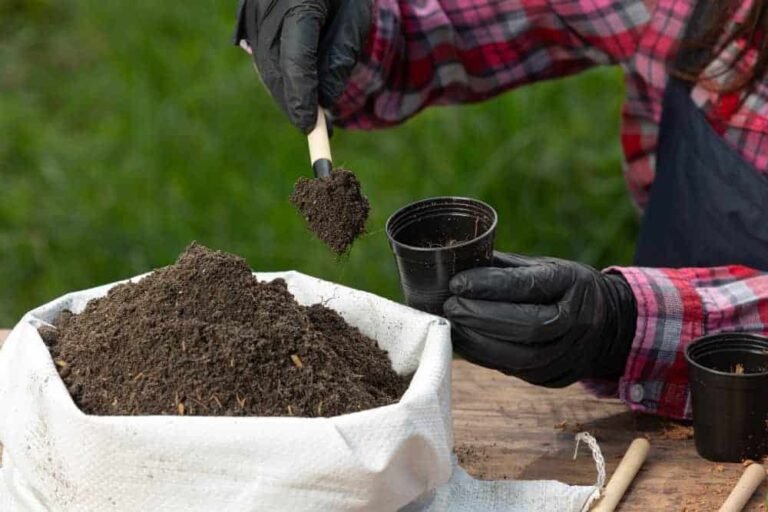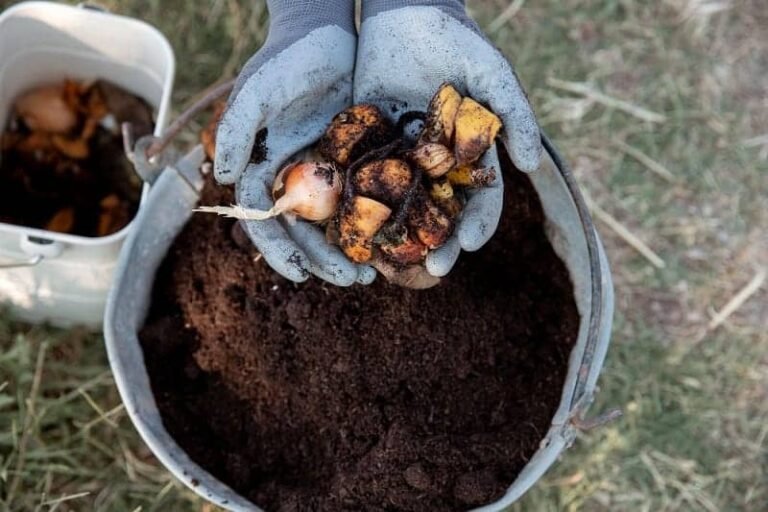10 Amazing Gardening Tips And Tricks For Beginners

As a beginner who wants to start a garden from scratch, employing the gardening tips and tricks for beginners laid out in this article will launch you into the market in less than 1 month of gardening.
Sounds like what you desire?
Even if you’ve never gardened before, these tricks are all you need to grow your own dream garden into a reality.
It’s no longer news that tricks and hacks are a tool to get work that would have taken years to come to fruition in a few months.
Just like in Poultry Farming, if you know what chickens eat, you can increase How Many Eggs They Lay In A Week as well as how big they become.
And the same applies to Catfish Farming and Pig Farming.
Gardening is no different as well.
In this article, we have carefully articulated a list of tricks and tips no one will tell you about gardening.
Also, we have included the best plants for beginner gardeners.
If you want to start making sales out of your garden in a few months you need to see these tricks for yourself!!!
Let me walk you through this piece in just a few minutes and you have your gardening blooming in a few steps.

What Does A Beginner Gardener Need to Know About Gardening?
Just before we let you know the tips that will make your garden bloom in a few months, there are some basic details of gardening you need to know.
Although anyone can go into gardening and be successful with no prior knowledge, for a gardener who intends to make this a business, here’s what you should know;
- Get to know your garden.
- Plan your garden.
- Learn how to plant either by seeds or by using young plants of the plants you want to garden.
- You will need to feed and water the garden plants regularly.
- Start small and grow big. This article will help you know the tricks to pull.
- Keep an eye on pests.
- Make use of compost.
- Don’t be afraid to prune.
This information gives you an edge in raising a successful garden without luscious garden plants.
What Kind of Plants is Ideal for a Beginner Gardener?
First, the kind of plants you plant in your garden depends on the kind of garden you want to keep.
However, for beginners who are still looking for a footing in this business, the best plants for beginner gardeners include;
- Lettuce
- Spinach
- Basil
- Turnips
- Cucumbers
- Carrots
- Eggplant
- Chard
- Peppers.
- Potatoes.
- Zucchini.
- Radishes.
- Tomatoes.
- Green Beans.
- Strawberries.
- Summer Squash.
Tips and Tricks For Beginners in Gardening.
Now here is the crux of the matter.
Here is a list of garden hacks that will help you have a great garden in just a few months.
#1. Get the Right Site For Your Garden.
Just like a shop or Industry site location contributes a quota to its visibility in the market, so does gardening.
The location of your garden has a lot to do with its success. First for you, then for your customers.
Your garden needs to be located in a place where you’ll see it regularly.
If you’re familiar with the “out of sight, out of mind” theory, it certainly applies to gardening.
Constant bumping into your garden helps you carry out the necessary activities as you should.
Also, its lusciousness can only attract offline customers.
This is a gardening trick no one will tell you.
Also, read about the 36 Farm Tools Every Farmer Needs For Easy Gardening
#2. Put the Sun in Your Plan.
As a beginner, there are many things you should be mindful of besides planting seeds and a good site.
One of those factors is the sun.
While choosing your garden location, put into perspective how the sunlight plays through your intended site location.
Some edible plants such as vegetables, herbs, and fruits, need at least 6 hours of sun in order to thrive.
Do not locate your garden in a place where your plants will “phototroph” to get light.
It will definitely spoil the garden design.
No one will tell you of this garden trick!!!
#3. Stay Close To Water.
One of the tips and tricks gardening beginners should always take advantage of is “keeping the water close.”
Your garden should be near a water source.
Ensure that you have a hose you can run water with to your garden.
Besides this being good for the plant, it’s also beneficial to you as a gardener.
Hauling water each time your plants get thirsty can be quite a task.
And the fact is that the garden plants always get thirsty!!!
#4. A Great Soil is a Great Start.
Here’s another gardening tip for beginners “starting with good soil.”
How sustainable your garden is will be largely traced to the kind of soil you plant on.
What’s a good seed without good soil?
When starting a garden, one of the top considerations that should fit is investing in good soil.
What do I mean by good soil?
Good soil is soil rich in nutrients and is well-drained.
For land that is not ideal for gardening, you can buy garden soil mixes from vendors and work it into the top 6 to 8 inches of the existing soil if you want to plant on land.
However, if you want to grow your garden on beds, you can grow them directly on the soil you bought.
This is a trick that works for all beginners.
#5. Consider Containers If the Space is No Longer Enough.
As a beginner, getting a good land may be quite a task and a fortune especially if you’re starting out small.
So if space is a big challenge to you, you can adopt the container gardening tip. You might want to consider mushroom grow boxes that provide delicious and nutritious mushrooms without taking up much space.
Yes!!! You can grow your plants such as vegetables, herbs, flowers, fruit trees, berries, and shrubs in pots and containers.
Using a large pot to grow garden plants is called hosting.
And ideally, plants tend to thrive well in pots because there is no nutrient competition ongoing.
You see no one will tell you that.
#6. Choose The Right Plant Seeds.
As a beginner in gardening, each season requires you to plant seeds according to the weather’s matching conditions.
Therefore, it’s ideal to select plants that match your growing conditions.
What this actually means is to put sun-loving plants in a sunny climate and heat-tolerant plants in warm climates.
Also, this means you should give ground-gobbling vines like pumpkins and melons ample elbow room or trellis to climb.
Therefore, you should actually do research on what grows well “where” and “when.”
Also, keep in mind that some plants grow better from vigorous young plants than from seeds.
#7. Discover the Hardiness Zone in Your Site.
What’s a Hardiness zone?
A hardiness zone describes the coldest place a plant can survive.
Keep in mind that the higher the hardiness zone number, the warmer the climate.
So if from your research, a particular plant is “hardy to zone 4” and you garden it in zone 5, it means that that plant will survive in your yard.
However, if your garden is in zone 3, it will not thrive well due to its niche.
That’s one of the gardening tips and tricks beginners have to always put into perspective.
#8. When is the Best Time to Plant?: Learn Your Frost Dates.
Another tip that holds true for all gardeners is knowing when to plant.
Planting too early or late in the season can affect the garden business.
You have to know the climate around your area so that you will not accidentally kill plants by putting them out prematurely.
Also, this helps to know when to harvest or move your plants indoors.
#9. Add Some Mulch.
As a gardener, one of the students you will pull is adopting the mulching skill.
As a gardening tip, you should apply a layer of mulch about 2 – 3 inches deep around each plant.
Mulching helps to reduce weeds by blocking out the sun and reducing moisture loss through evaporation.
This also means you have to water less often.
For a polished look, put down straw, shredded leaves, pine straw, or some other locally available material or the bed.
#10. Feed The Plants Regularly.
Even though you started off with good soil, it’s also ideal that you sustain it by adding regular boosts of high-quality nutrition to the soil for your plants.
What this means is that in addition to amazing soil, top-notch plant food equals a super garden success!
So start adding nutrient boosts to plants after a month of planting.
As a beginner, this is one of the tricks and tips for gardening that skyrockets you into business in a short while.
Frequently Asked Questions About Tips And Tricks For Beginners in Gardening.
What are Some Tips for Gardening?
In addition to the tricks above, here are some other things you can add to the list;
- Start small, but not too small.
- Move beyond the potting soil mix.
- If you use transplants instead of seeds, keep the soil consistent at all times.
- Your garden should be full of things you actually eat.
How Do I Plan My Garden Layout?
A garden layout is blissful to look at if planned. When planning a garden here are some of the things you do;
- Choose a site where the soil is loose, nutrient-rich, leveled, and well-drained.
- If you’re planting flowers, consider a mix of annuals and perennials.
- Do not choose areas where water logs or stands or where the soil stays wet.
- Never grow the same type of vegetables in the same plot of soil for two or more years in a row. Rotation helps the soil’s nutrients remain.
- Also, do not garden where weeds do not grow. Why? Vegetables will not grow well there. Another tip no one will tell you.
- In addition, keep in mind that vegetables need sunlight to grow well.
How Do I Know If My Garden Plants Are Thirsty?
One of the gardening tips and tricks for beginners is making provision for water for your plants at all times.
But how do I know when to hose water to the garden plants?
How do I know that the plants are thirsty?
Well, the best way to tell if plants need watering is to push a finger an inch down into the soil.
That’s about one knuckle deep.
If the soil is dry, then it’s time to water.
Summary
These garden tricks are what will give you a great garden if you follow them strategically.
However, while a good site, seed, and great hacks are a good start, you need to stock up on the basic gardening tools you need to make it easier to grow.
Do not make mistakes in using Poultry Farming Equipment for gardening.
It’s ideal you use garden tools and equipment.
Which step is a sure guide for you? Let us know in the comment section.





